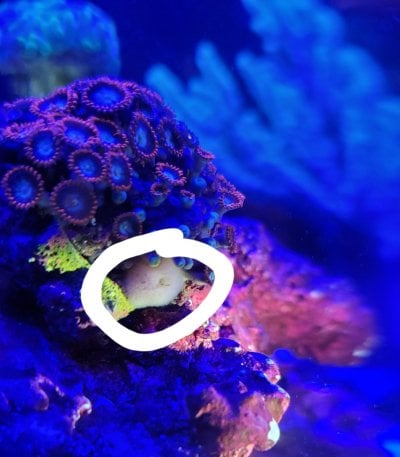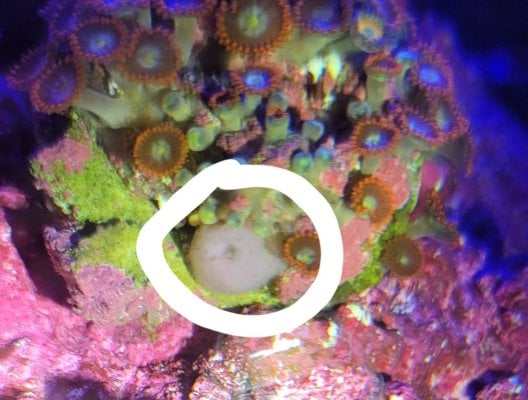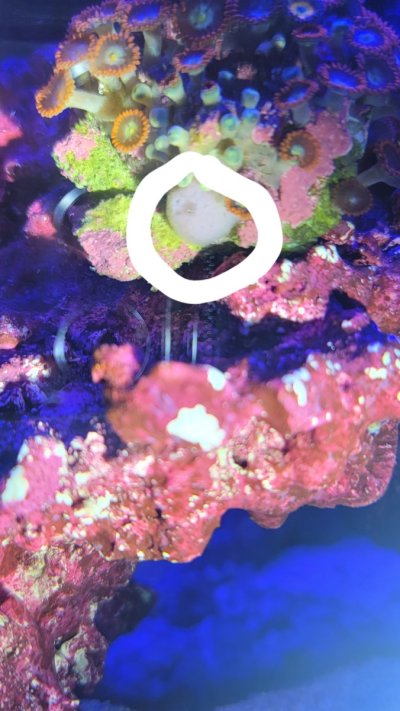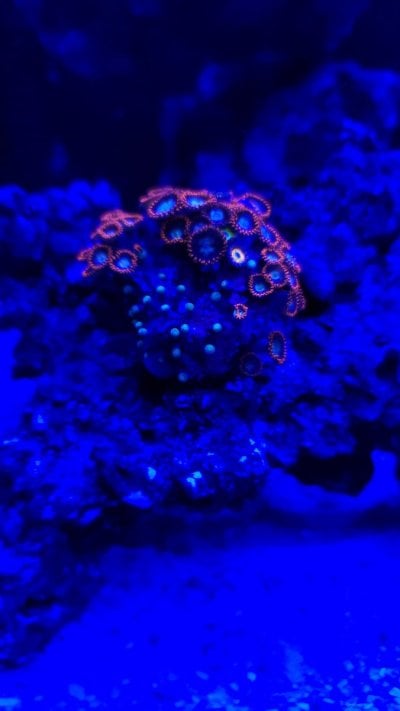Navigation
Install the app
How to install the app on iOS
Follow along with the video below to see how to install our site as a web app on your home screen.
Note: This feature may not be available in some browsers.
More options
You are using an out of date browser. It may not display this or other websites correctly.
You should upgrade or use an alternative browser.
You should upgrade or use an alternative browser.
Purple blob on zoa colony rock
- Thread starter LordClownFish
- Start date
- Tagged users None
That's a sponge - if it was the source if the irritation, I would expect the open polyp right beside it on the right in the pics would be closed as well; so I'm not personally convinced the sponge is the cause of the zoas closing there, but it could be:
Most sponges are completely harmless/beneficial, but some can be invasive and/or harmful to corals (thankfully, these are rare).
To tell if a sponge is chemically harmful: if a healthy, established coral starts closing up or looking to be in bad shape on the side closest to the sponge as the sponge grows closer to it, and nothing else has happened (lighting changes, parameter swings, pests, etc.) that could explain it, then the sponge is probably chemically harmful.
Chemically harmful sponges are very rare.
For invasive sponges: unless it shows signs of being chemically harmful or starts actively growing over and smothering a coral's flesh/polyps, it's harmless. These can grow over the skeletons of corals, around the base/stalks of corals, even up into the water column above corals (where they're over the coral but not growing on the flesh or polyps themselves), etc. without harming the coral at all - as long as the coral flesh and polyps can get food, light, and flow, the sponge is harmless.
Invasive sponges are moderately rare.
Invasive and chemically harmful sponges are incredibly rare.
They haven't opened since Tuesday. That one you are speaking about has since closed as well, closed Wednesday I want to say. Only the ones close to the sponge are closed, everything else in the tank is great. Just confusing.That's a sponge - if it was the source if the irritation, I would expect the open polyp right beside it on the right in the pics would be closed as well; so I'm not personally convinced the sponge is the cause of the zoas closing there, but it could be:
Attachments
Ideas? Think it's the sponge?
Yeah, with the other ones close to it closing now, I'd suspect the sponge.Ideas? Think it's the sponge?
I mention this in my somewhat messy post (linked below), but some sponges can regrow from single cells, so you really have be sure they're dead and gone or that your tank has become a hostile environment to them to ensure they won't come back.
For removal in case it is a sponge, my post linked below has some ideas you can try - you may also be able to try smothering it using DIY reef snow or similar, but there's no guarantee there:
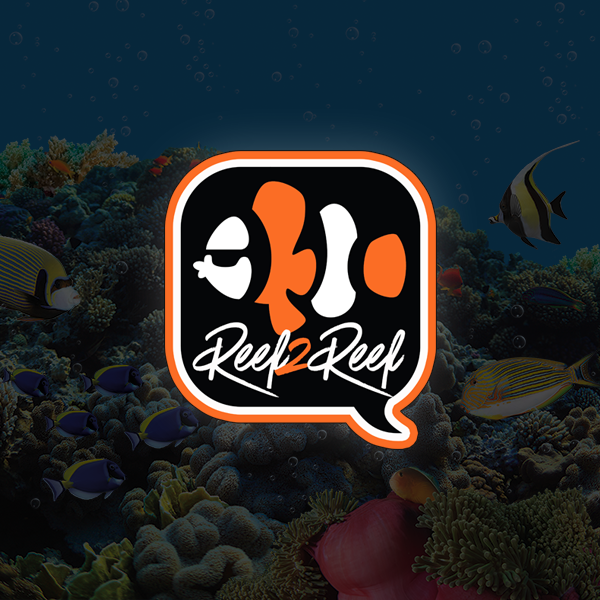
Is this a pest?
Dear friends, Tonight i recognised that one of the polyp was closed and saw something weird on it? What do you think it is? Should i worry? Thanks, Ozgur
 www.reef2reef.com
www.reef2reef.com
If you decide to try the Fenbendazole or something similar, then please post back here and let us know how it goes - while harmful sponges are rare, a more effective treatment to eliminate them would be appreciated by the unlucky few who have them show up.



